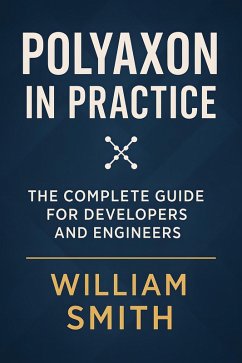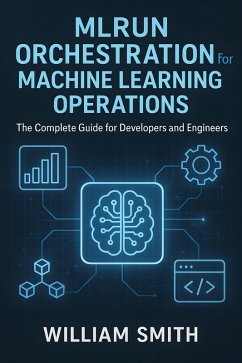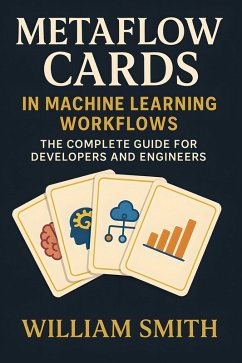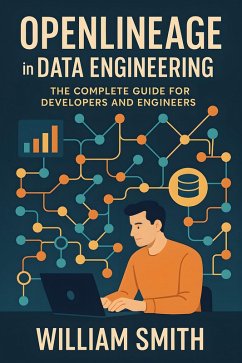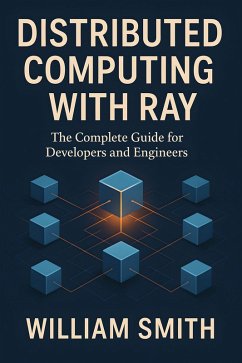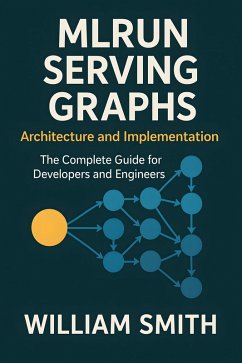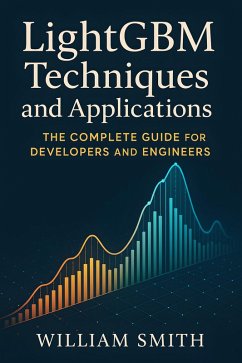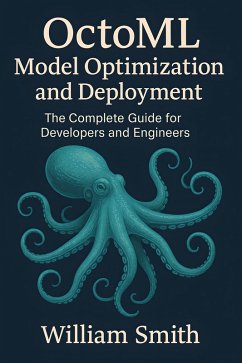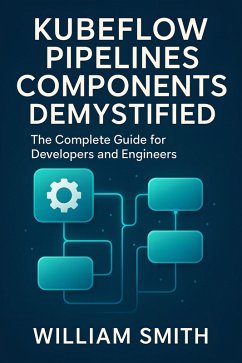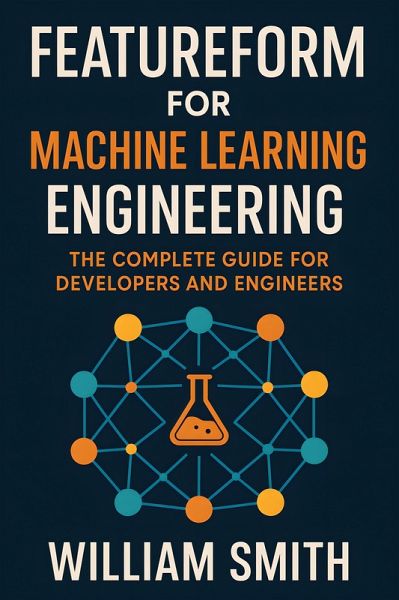
Featureform for Machine Learning Engineering (eBook, ePUB)
The Complete Guide for Developers and Engineers
Sofort per Download lieferbar
8,52 €
inkl. MwSt.

PAYBACK Punkte
0 °P sammeln!
"Featureform for Machine Learning Engineering" "Featureform for Machine Learning Engineering" is a comprehensive guide that equips machine learning engineers, data scientists, and MLOps practitioners with the knowledge needed to tackle the intricacies of modern feature management. The book meticulously explores the foundational role of features throughout the ML lifecycle, uncovers the limitations of conventional feature pipelines, and introduces the strategic value of purpose-built feature stores. Through a deep dive into Featureform's objectives, architecture, and technical integrations, rea...
"Featureform for Machine Learning Engineering"
"Featureform for Machine Learning Engineering" is a comprehensive guide that equips machine learning engineers, data scientists, and MLOps practitioners with the knowledge needed to tackle the intricacies of modern feature management. The book meticulously explores the foundational role of features throughout the ML lifecycle, uncovers the limitations of conventional feature pipelines, and introduces the strategic value of purpose-built feature stores. Through a deep dive into Featureform's objectives, architecture, and technical integrations, readers will discover best practices for overcoming challenges related to scalability, reproducibility, and consistency in real-world machine learning workflows.
Structured across a series of in-depth chapters, the book covers end-to-end deployment strategies, infrastructure automation, and robust operational patterns for feature engineering at enterprise scale. It details how to declaratively manage, transform, and serve features-both in batch and real-time environments-while providing actionable insights on leveraging Featureform's extensible APIs and plugin architecture. Readers will benefit from practical guidance on integrating with prominent ML and data orchestration tools, managing security and compliance across diverse environments, and implementing feature governance frameworks to ensure accountability and collaboration.
Enriched with advanced topics such as automated feature discovery, temporal and sequential feature engineering, and explainable pipelines, the book further grounds its teachings with domain-specific case studies and critical lessons learned from production deployments. Whether adopting Featureform for the first time or seeking to modernize existing ML infrastructure, this book offers an authoritative and pragmatic roadmap for building resilient, scalable, and auditable feature pipelines that drive the success of machine learning initiatives.
"Featureform for Machine Learning Engineering" is a comprehensive guide that equips machine learning engineers, data scientists, and MLOps practitioners with the knowledge needed to tackle the intricacies of modern feature management. The book meticulously explores the foundational role of features throughout the ML lifecycle, uncovers the limitations of conventional feature pipelines, and introduces the strategic value of purpose-built feature stores. Through a deep dive into Featureform's objectives, architecture, and technical integrations, readers will discover best practices for overcoming challenges related to scalability, reproducibility, and consistency in real-world machine learning workflows.
Structured across a series of in-depth chapters, the book covers end-to-end deployment strategies, infrastructure automation, and robust operational patterns for feature engineering at enterprise scale. It details how to declaratively manage, transform, and serve features-both in batch and real-time environments-while providing actionable insights on leveraging Featureform's extensible APIs and plugin architecture. Readers will benefit from practical guidance on integrating with prominent ML and data orchestration tools, managing security and compliance across diverse environments, and implementing feature governance frameworks to ensure accountability and collaboration.
Enriched with advanced topics such as automated feature discovery, temporal and sequential feature engineering, and explainable pipelines, the book further grounds its teachings with domain-specific case studies and critical lessons learned from production deployments. Whether adopting Featureform for the first time or seeking to modernize existing ML infrastructure, this book offers an authoritative and pragmatic roadmap for building resilient, scalable, and auditable feature pipelines that drive the success of machine learning initiatives.
Dieser Download kann aus rechtlichen Gründen nur mit Rechnungsadresse in A, B, BG, CY, CZ, D, DK, EW, E, FIN, F, GR, H, IRL, I, LT, L, LR, M, NL, PL, P, R, S, SLO, SK ausgeliefert werden.




